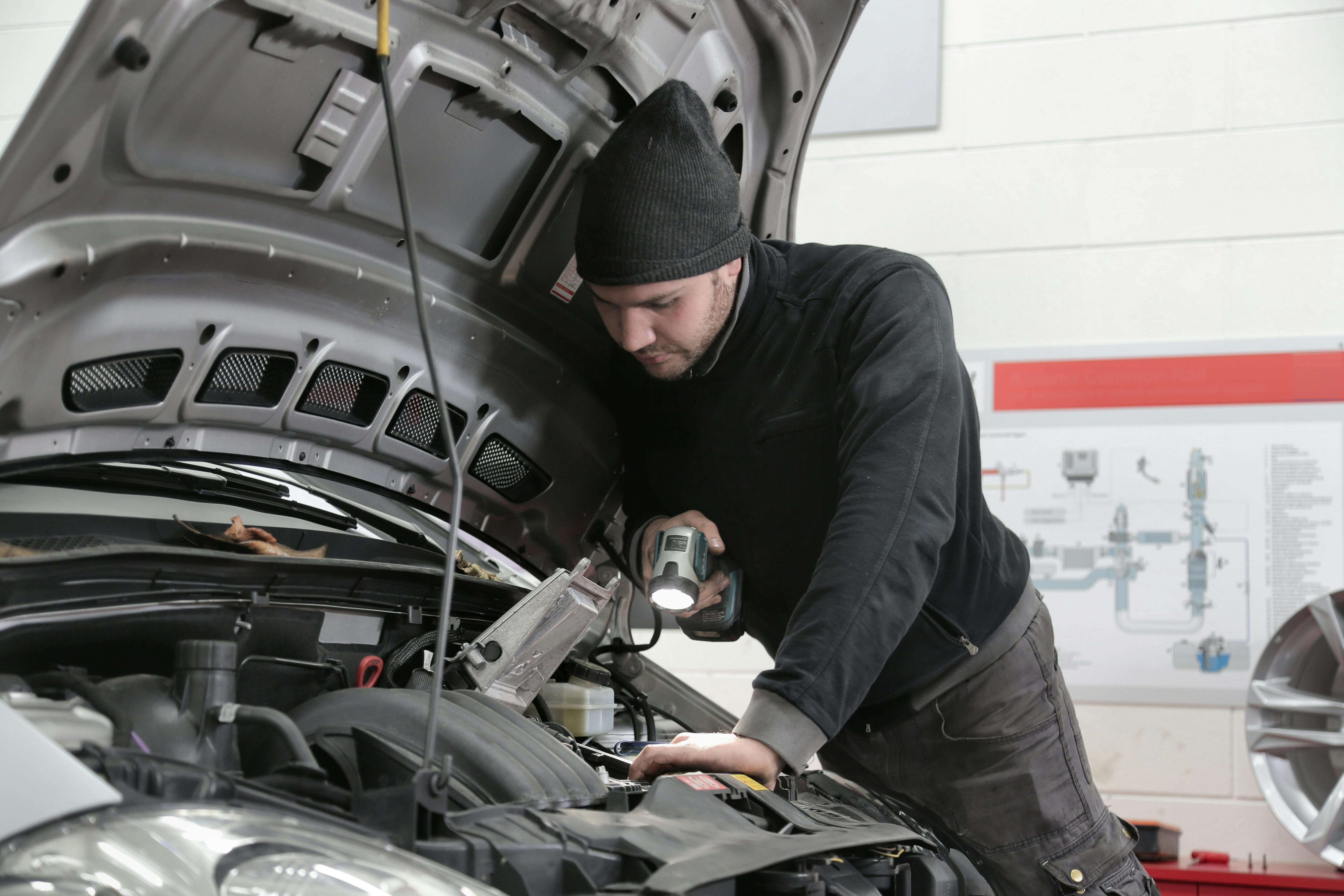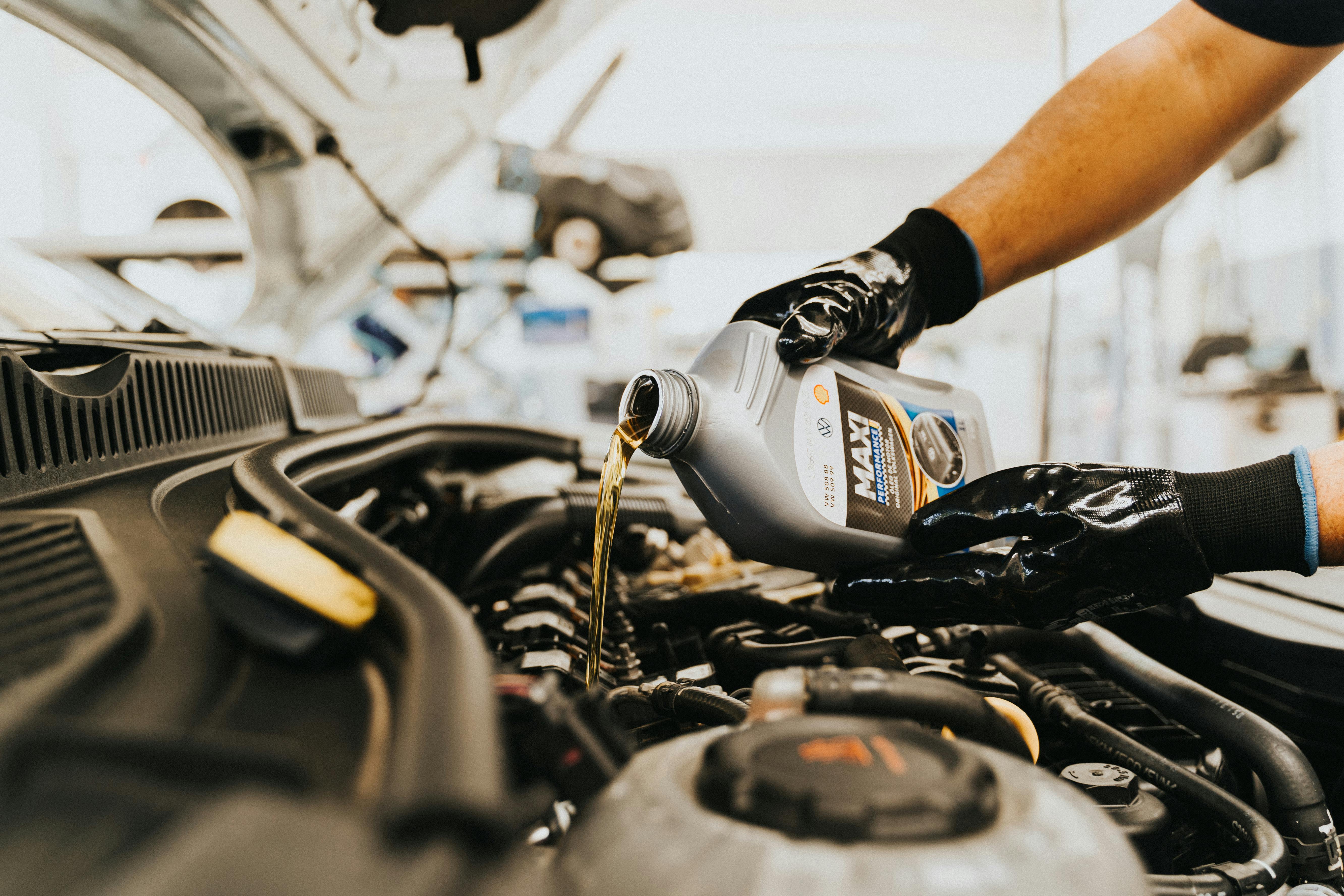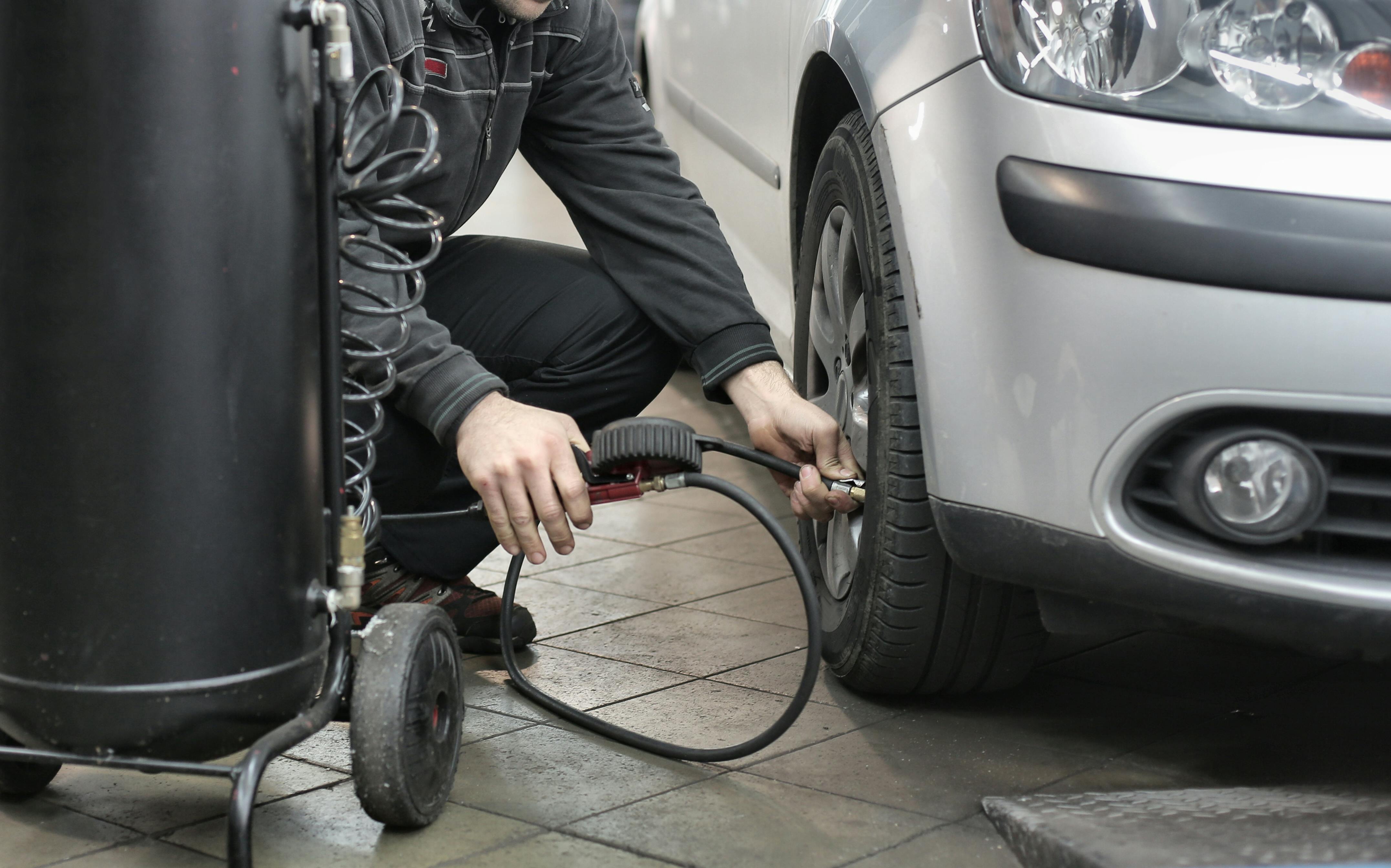
The Risks of Driving Your Car Without Servicing It
By Anna Jones at Eversure,
16 December 2024, 15 min read

Keeping your car in the best condition requires consistent attention and one of the most effective ways to achieve this is through regular servicing. Unlike annual MOTs, car services are not required by law. This might tempt you to skip them to save time or money. However, neglecting regular servicing can lead to serious risks that far outweigh any short-term savings.
Whilst an MOT focuses on identifying necessary repairs to make sure car meets road safety standards, a service is a preventative measure. Services help to minimise the chances of major issues developing over time and consequently your car will run more smoothly and reliably.
Skipping routine services could put you and your vehicle at risk. Understanding these risks is important as it will allow you to make informed decisions about your car’s upkeep as well as ensuring its long-term performance and safety.
What is a Car Service?
A car service is a routine health check for your vehicle, designed to make sure it remains in optimal condition. During the service, a qualified mechanic will inspect and evaluate the condition of major components. They will replace specific parts and fluids at recommended intervals, as prescribed by the manufacturer, and address any wear or potential issues to preserve your car’s performance, safety and reliability. Unlike an MOT, which checks if your car meets minimum legal standards, a regular car service focuses on preventative care and the overall performance of your vehicle.
The scope of a car service can vary depending on how long it has been since the last one however the importance of car servicing goes beyond routine maintenance. Regular servicing offers several key benefits:
- Increased vehicle value: A well-maintained car with a complete service history remains a higher resale value.
- Prevents issues from escalating: Identifies potential problems early, saving you from costly repairs later.
- Keep all road users safe: Keeping your car safe to drive protects you, your passengers and other road users.
The most comprehensive services will check over 50 systems and components. This attention to detail will make sure your car remains reliable and roadworthy.
What Does a Car Service Include?

The exact checks included in your car service will vary depending on your service type, whether it is an interim service, a full service or a major service. There are five main types of car services available, each catering to specific maintenance needs:
- Regular maintenance: Focuses on replacing essential items like oil and filters that keep your engine running smoothly.
- Interim service: Recommended every 6 months or 6,000 miles, whichever comes first, to address basic upkeep and prevent issues between the annual service.
- Full service: A comprehensive check-up performed every 12 months or 12,000 miles, whichever comes first, covering more extensive inspections and maintenance tasks.
- Major service: Usually every 2 years or 24,000 miles, whichever comes first, and may involve replacing key components like spark plugs, brake fluid and air filters.
- Manufacturer service: Scheduled according to your vehicle’s manufacturer’s guidelines. Look at your car’s manual for the specific requirements.
The checks performed also vary based on your vehicle’s make and model. However, car service typically includes the following:
Fluids and Filters

Oil and oil filter changes: By replacing old engine oil and its filter, smooth engine performance is ensured. Replacing the oil in your vehicle is important in maintaining a safe and reliable engine. Oil helps to lubricate all the key components of your car as well as the mechanics. The oil also helps maintain the correct operating temperatures across various parts of the engine and internal systems. Older and unclean oils impact the mpg, emissions, and efficiency of the vehicle.
Fluid top-ups: Aside from engine oil, there are other fluids that are important to keeping the vehicle in a healthy condition. This includes brake fluid, screen wash, coolants, power steering fluid, anti-freeze concentration and many others that need to be assessed and replaced if necessary.
Engine and Mechanical Components
Spark plug replacements: Although many manufacturers recommend that they are replaced every 30,000 miles, they should be checked every service. This can change depending on your driving style, model and the condition of any other parts that could link to the spark plug. Spark plugs supply the spark that ignites the air/fuel mixture that creates the explosion to make your engine produce power. They are essential for your engine to run and so are important to have serviced.
Air/cabin filter changes: This is a simple check that involves unclipping the airbox and replacing the filter. The gassing of an air conditioning unit can also be carried out, but this often comes at an extra cost.
Fuel filter changes: This process involves locating and accessing the fuel filter, then removing It and replacing it with a new one. It makes sure that debris and impurities are filter out which then protects the engine from damage.
Brakes and Tyres

Braking system checks: The brakes are obviously an important part of the safety of vehicles. A mechanic can check all the components that are made up to run the braking system such as the brake pads, discs, callipers as well as the brake fluid levels.
Tyre pressure and conditions: If you travel a lot and over various different quality roads then the four tyres of your car will be impacted. The pressure, tread and overall condition of the tyre will be reviewed and replaced if necessary.
Lights, Wipers and Electricals
Lights: The headlights, brake lights and indicators will all be inspected to see if they are in working order and functioning properly.
Wipers: The condition and effectiveness of windshield wipers and washer jets will be checked.
Electricals: Modern vehicles are fitted with a lot of technology, some crucial (airbags, anti-lock braking system), some for comfort (seat heaters, climate control) and some to aid driving experience (parking sensors, reverse cameras).
Steering and Suspension
Steering system: Checks for proper alignment, responsiveness and smooth operation of the steering wheel.They may also inspect the power steering fluid level, hoses and connections to make sure there are no leaks or obstructions.
Suspension: The suspension system absorbs shock from the road and makes for a more comfortable drive. Mechanics will inspect shock absorbers, springs, struts, and control arms for wear, damage or leaks.
Exhaust and Emissions
Exhaust system: A thorough inspection of the exhaust system will make sure it is free of leaks, corrosion or physical damage. The exhaust pipes, muffler, catalytic converter and any connecting joints will be checked for signs of wear. Faulty components in the exhaust system can lead to increased noise, harmful emissions or reduced engine efficiency.
Emissions: To make sure your vehicle complies with environmental standards, the emissions system is checked using diagnostic tools. This process involves measuring the levels of harmful gases (such as carbon monoxide, nitrogen oxides and hydrocarbons) being emitted. If levels exceed legal limits, the mechanic may inspect and repair components such as the catalytic converter, oxygen sensors or exhaust recirculation system.
General Safety and Functionality
Underbody Inspection: This underbody will be examined for leaks, rust and other structural issues. This includes the fuel lines, brake lines and protective shields for damage. Corrosion can compromise the integrity and safety of the vehicle.
Belts and Hoses: Belts (such as the serpentine belt or timing belt) and hoses will be checked for cracks, fraying, splits or stretching. These components are essential for operating systems like the engine, cooling and power steering. A failure in any of these could lead to significant breakdowns so a timely replacement is essential.
What Happens If I Don’t Service My Vehicle?

You may be tempted to skip your vehicle’s regular maintenance service to save time and money. However, failing to routinely service your car can be risky and may jeopardise your safety. It may seem like a cost-savvy move in the short term, but down the line it could lead to expensive repairs, reduced performance and increased safety hazards.
Driving a car without servicing it can lead to many risks including:
Safety Hazards
Worn-out brakes, damaged tyres and fault lights will make your car unsafe to drive and will put you and other road users at risk.
Engine Problems
Failing to change the oil can lead to a buildup of sludge. This catalyses engine failure and thus costly repairs.
Poor Fuel Economy
An engine that is not running as efficiently as possible will lead to a higher fuel consumption and therefore higher fuel costs.
Breakdowns
Fluid or oil leaks can lead to sudden breakdowns which will be highly inconvenient and dangerous in busy traffic. For further peace of mind, invest in breakdown cover so you know that if anything were to go wrong, you will be covered.
Expensive Repairs
As previously mentioned, skipping regular services will lead to issues that could otherwise be covered under warranty (if you bought a new car) or would have been cheaper to fix if they were caught earlier. Not servicing your car could force you to pay-out-of-pocket for costly repairs.
Decreased Vehicle Lifespan
A well-maintained car lasts longer. Skipping regular services speeds up wear and tear, leading to a shorter lifespan and the need to replace your car sooner than anticipated.
Reduced Resale Value
Cars with a full-service history hold a higher resale value. Choosing to not service your car can lower your vehicle’s worth if you eventually decide to sell it.
Regular car servicing is an investment that saves you money, enhances your safety and helps preserve your car’s value. Don’t wait for small issues to accumulate and accelerate to become costly repairs.
When Should I Service My Car?
We recommend your car has regular servicing. In addition to the regular service intervals of 6 months, annually and every 2 years, you should look and listen out for warning signs that indicate problems. The following things may indicate your car needs attention soon:
- Dashboard warning lights
- Strange noises
- Dripping liquid
- Loss of power and frequent stalling
- Brakes feeling different
- Smoke coming from your bonnet or exhaust
- Vibrations such as juddering or stuttering
Final Thoughts

Although regular car services are not legally required, it is an investment in both your safety and the performance of your vehicle. By staying proactive with maintenance, you can identify potential issues before they escalate and become costly problems. Don’t let the temptation to skip servicing lead to regrets down the road.
You will also need to keep track of your car’s service history. Maintaining a record of when your vehicle has been serviced and what work has been done means you can stay well informed about its condition. This information is invaluable when it comes to selling your vehicle as it will boost its resale value and will avoid unnecessary repairs.
For complete peace of mind, why not take the extra step and get breakdown cover with us today? Be prepared for any situation and drive with confidence knowing your car is in optimum condition and you are protected if anything goes wrong.